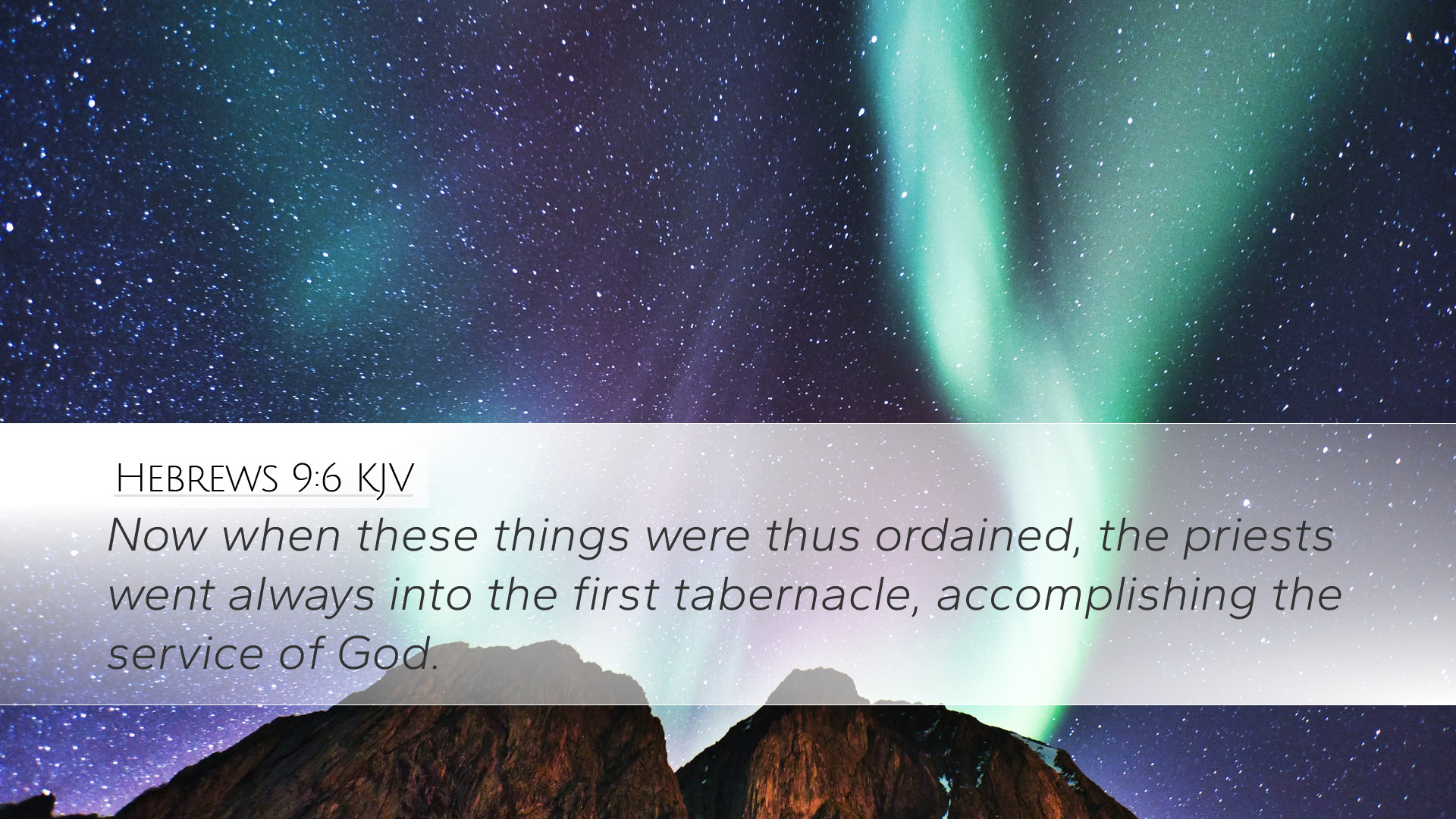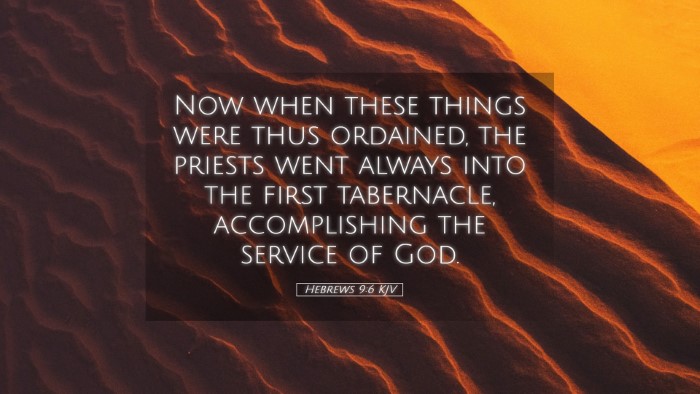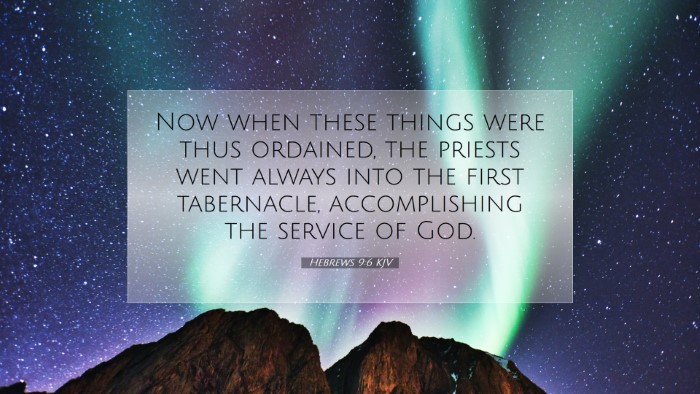Commentary on Hebrews 9:6
Hebrews 9:6 (KJV): "Now when these things were thus ordained, the priests went always into the first tabernacle, accomplishing the service of God."
Introduction
This verse highlights the ritualistic aspect of the Old Testament priesthood as it relates to the Tabernacle service. The author of Hebrews draws a contrast between the ongoing duties of priests and the ultimate sacrifice of Jesus Christ. The examination of Hebrews 9:6 provides vital insights into the nature of the Levitical priesthood, the significance of the Tabernacle, and the theological implications for understanding Christ's ministry.
Contextual Overview
The Book of Hebrews focuses on the superiority of Christ over the Old Covenant. Throughout chapter 9, the author emphasizes the limitations of the earthly sanctuary and the repeated sacrifices offered by the priesthood. In verse 6, the author sets the stage for discussing the role of the priests in the Tabernacle, which serves as a type of the heavenly realities.
Matthew Henry's Insights
Priestly Duties: Henry highlights that the regularity of the service performed by the priests signifies the imperfections of the old system. They constantly entered the first tabernacle to perform sacrifices and rituals that could never fully atone for sin. These actions were a foreshadowing of Christ, who entered the true sanctuary once for all, providing eternal redemption.
Albert Barnes' Thoughts
Ordained Worship: Barnes comments on the phrase "when these things were thus ordained," indicating that the sacrificial system was divinely instituted. The structure of the tabernacle and the duties of the priests were specifically designed by God, revealing His purpose for salvation history. Barnes emphasizes the necessity of these rituals for God’s people until the coming of Christ, who fulfilled the requirements of the law.
Adam Clarke's Commentary
Significance of Service: Clarke reflects on the enduring nature of the services within the first tabernacle. The priests, by performing these continual sacrifices, highlighted humanity's need for constant atonement. He notes that this repetitive action underscores the insufficiency of animal sacrifices, as they could not purge the conscience of sin.
Theological Implications
The implications of Hebrews 9:6 extend into various areas of Christian theology, particularly in the understanding of sacrificial atonement and Christ’s priestly ministry. The passage informs us of several key themes:
- The Role of the Priest: The ongoing work of the priests in the tabernacle illustrates the necessity of mediation between God and man. In contrast, Christ emerges as our High Priest who has completed the work of salvation.
- Limitations of the Old Covenant: The repetitive nature of the sacrifices symbolizes the inadequacy of the Levitical system. This leads to a deeper understanding of the need for a new covenant established through Christ’s blood.
- Foreshadowing of Christ: The structure of worship in the tabernacle points towards Christ’s ultimate sacrifice. The earthly service of the priests served a purpose but was always designed to culminate in the perfect offering made by Jesus.
Practical Applications for Ministry
For pastors and theologians, Hebrews 9:6 encourages a profound appreciation for the transition from the old system to the new covenant. The following applications can be drawn:
- Understanding Atonement: It is vital to teach congregants about the sufficiency of Christ’s sacrifice. This entails exploring not only the history of Israel's sacrificial practices but also their fulfillment in Christ.
- Rituals and Worship: This scripture serves as a reminder of the significance of worship practices. Enriching worship involves understanding the roles and responsibilities of the priesthood that can shape congregational life today.
- Encouragement of Faith: As believers grasp the difference between the old and new covenants, they can find assurance and encouragement from the completeness of Christ's work, which leads to greater faith and devotion.
Conclusion
Hebrews 9:6 succinctly captures the essence of priestly service under the Old Covenant while setting the stage for a deeper understanding of Christ's redeeming work. The insights from Matthew Henry, Albert Barnes, and Adam Clarke collectively remind us of the profound implications of this passage on our understanding of God’s plan for salvation. As we reflect upon these verses, may we grow in our appreciation of Jesus Christ as the perfect High Priest who rendered the old sacrificial system obsolete, ushering in a new era of grace and truth.


